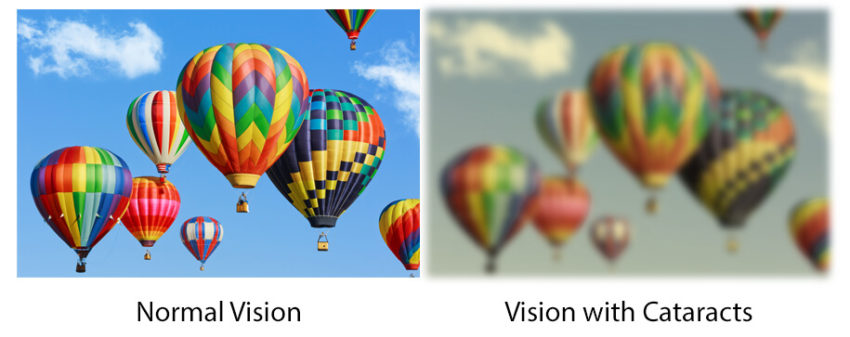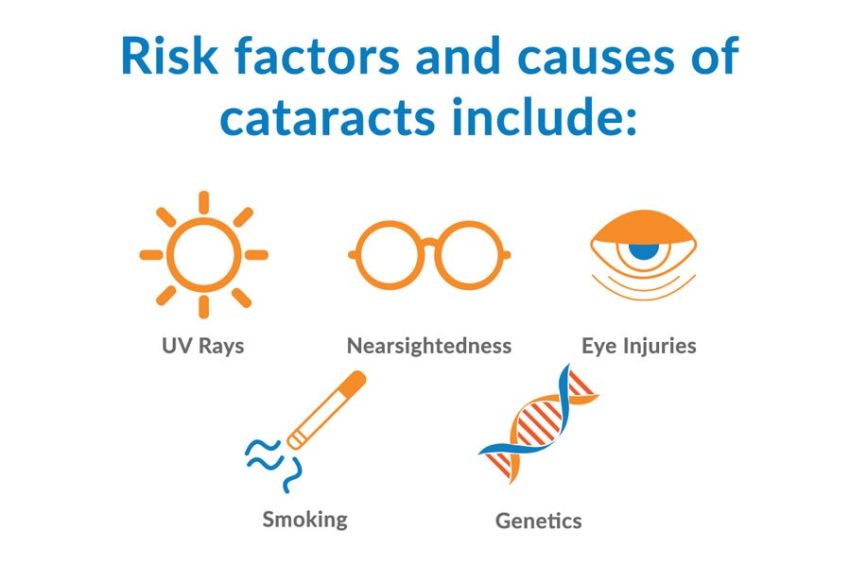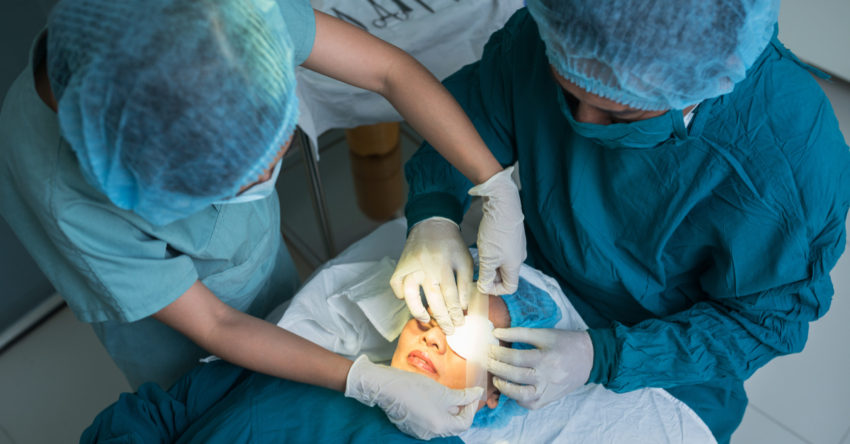Do you have cloudy vision? Perhaps you have a blurry spot in your vision? These are both common cataract symptoms and as we get older, the chances of developing these symptoms become more likely, with over 90% of people aged over 65 developing cataracts. Cataracts ultimately lead to vision loss, but this is not permanent and can be reversed with treatment.
So how can you spot if you have cataracts this summer? And what can you do about it?
 Signs of Cataracts
Signs of Cataracts
In addition to cloudy vision and blurry spots in your vision, other symptoms of age-related cataracts include: colours appearing faded, lights being too bright or glaring and difficulty seeing in low light conditions. If you wear glasses, you may initially think that the lenses are dirty, yet no amount of cleaning seems to brighten things up.
In most cases, there is no pain or discomfort associated with having cataracts.
Risk Factors for Cataracts

As we’ve already mentioned, age is a major factor in whether you will develop cataracts. However, there are other factors that can increase your chances of developing cataracts earlier in life:
- A family history of cataracts
- Diabetes
- Excessive alcohol consumption
- Smoking
- Long-term use of steroids
- Trauma or injury to the eyes
If you think you are at risk of developing cataracts or may already have cataracts, it is important to seek professional help to monitor your condition and, when the time is right, get appropriate treatment.
On the Road to Treatment
Before you can get treatment, you need to get a diagnosis. That means keeping up with regular appointments to see your optometrist for check-ups. This should happen at least every 2 years until the age of 70 and more often over 70 or if you have a pre-existing eye condition.
In addition to your routine eye check, some optometrists can also provide an even more comprehensive examination of your eyes using an OCT eye scan, which captures a detailed image of your retina.

If you get a diagnosis of cataracts, you optometrist will explain your treatment options, which may include being referred to a specialist at a hospital.
Cataract Treatment Options
If your cataracts are in the early stages, your optometrist will most likely advise that you come in for regular checks to closely monitor their development. This will determine whether your cataracts can be managed at home or if they require intervention.
If your cataracts are in a more advanced stage, surgery will be recommended. Cataract surgery is one of the most common surgeries carried out in the UK and has a very high success rate with a low incidence of complications. It involves removing the cloudy lens and replacing it with an artificial lens.

On the NHS the lenses used in cataract surgery are monofocal lenses, which will enable you to see clearly across long distances. However, you will need glasses for tasks such as reading. Private healthcare gives you the option of having multifocal lenses put in, so you can see far and near. However, you will still likely need to wear glasses to support your vision.
What Can You Do to Protect Your Eyes from Cataracts?
Although cataracts are very common over the age of 65, there are measures you can take to delay their onset. These include lifestyle changes such as quitting smoking, reducing your alcohol consumption, eating a healthy, balanced diet, as well as keeping medical conditions such as diabetes under control.
It is also a good idea to visit your optometrist, who can look out for the health of your eyes, including the early signs of cataracts. At The Optical Studio, your opticians in Farnham, Virginia Water, Pimlico and Dorking, we are proud to also offer our patients OCT scans for greater peace of mind when it comes to their vision. To enjoy healthy vision for longer, book your eye appointment with us today.

